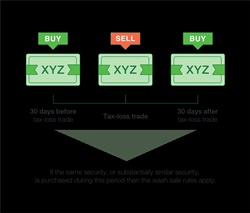
Table of Contents
Defining Underperform
An investment is said to be underperforming when it is not keeping pace with other different securities. For example, in a rising Market, a stock is considered underperforming if it does not have enough gains equal to or greater than the S&P 500 Index advance. A stock is known as an underperformer in a down market, if it is dropping faster than the broader market.
The term also refers to “weak hold” or market “moderate sell”. An analyst will assign a particular rating for the underperform whenever a stock is not expected to go at par with the market pace.
In simple words, underperform is a term used by analysts in an attempt to examine, predict, and describe the prospect of a specific company. Further, this also means that the said company is likely to worsen over time than its Industry average.

Underperform in Detail
It is often hard to define precisely as the definition varies between different brokerages. An underperform rating is, in general, better than “sell” or “strong sell” and worse than “neutral”.
It is a stock that is expected to perform slightly below Par. Therefore, it sees below-average profits in the upmarket, and higher losses in the down market. The neutral designation is assigned to a stock that is likely to provide results matching the broader market.
A stock gets a sell rating whenever it is expected to lose its value. On the other hand, strong sell refers to concerns when a company is facing a crisis, and its stocks might suffer significant losses. If a company is designated as “strongly underperform”, it will receive the sell guidance.
A security can also receive the designation of an underperform if it fails to meet or exceed a specific metric against which it is compared.
Talk to our investment specialist
Why Does Underperform Matter?
Investors often derive valuable information from the recommendations by analysts about certain stocks. The role of an investor is to analyze, understand, and weigh all the varying recommendations made by analysts. However, every recommendation made by the analysts is not consistent and is based on similar factors or measures of the activities of a business.
Some Real-World Examples of Underperform
An entire industry might get the designation of an underperform. For instance, analysts often choose to Call the utilities industry to be underperforming as Inflation may lead to a rise in interest rates and that Economic Growth might boost the industry. The higher interest rates might be detrimental for the utility sector.
An analyst will assign a specific stock an underperform rating if there are chances that the shares won’t be able to keep pace with other stocks for numerous reasons. Based on factors like the brokerage house, an outlook rating assigned to the term “underperform" may have different degrees.
An analyst will determine when to assign the underperform rating, that’s when stocks are keeping at pace with the market. There can be numerous reasons why a stock may be designated an underpaying stock. This figure is estimated by comparing several company metrics together with the peers of that particular market.
All efforts have been made to ensure the information provided here is accurate. However, no guarantees are made regarding correctness of data. Please verify with scheme information document before making any investment.












